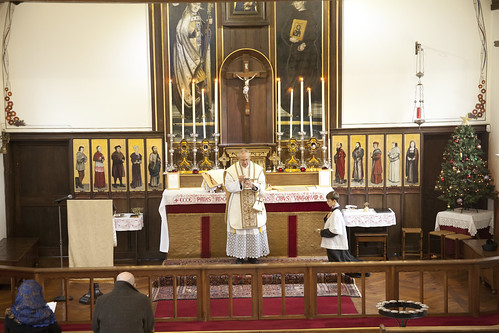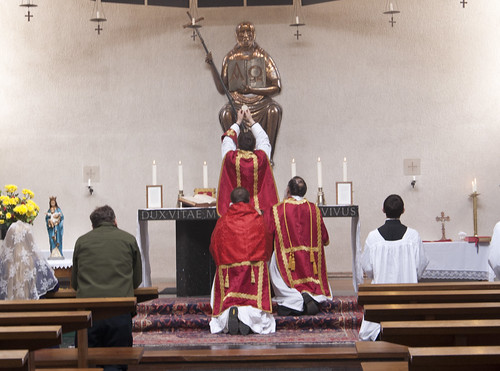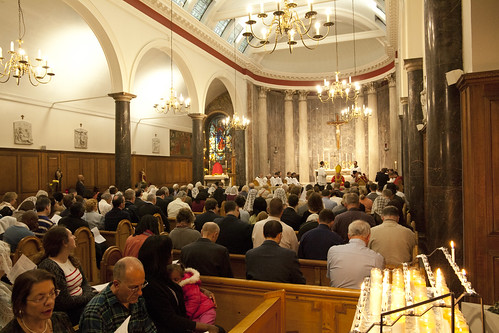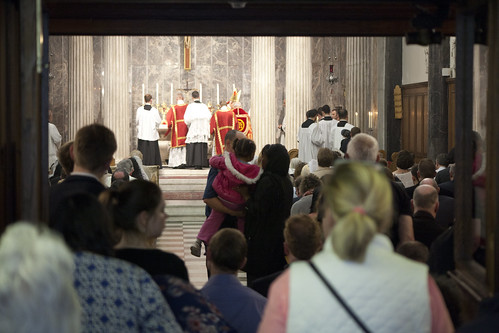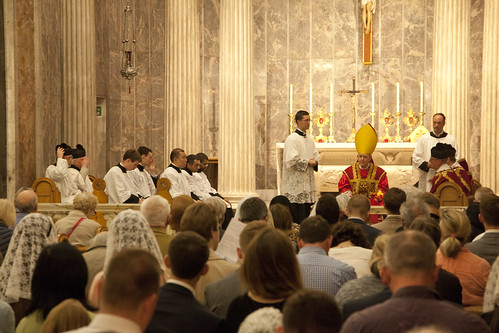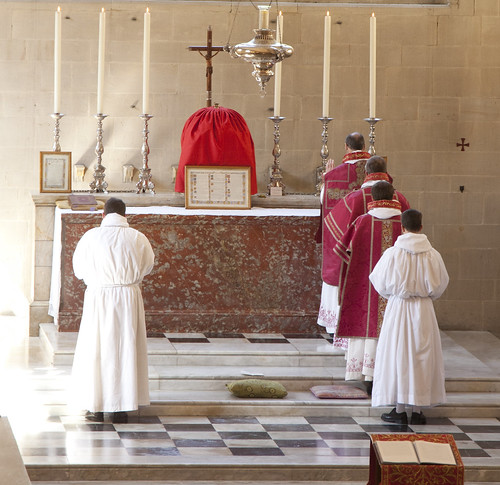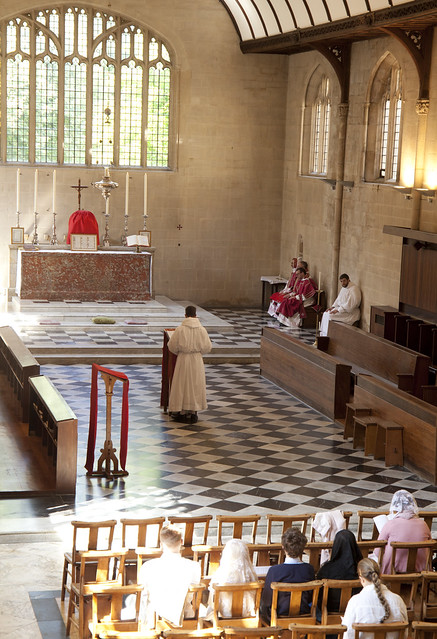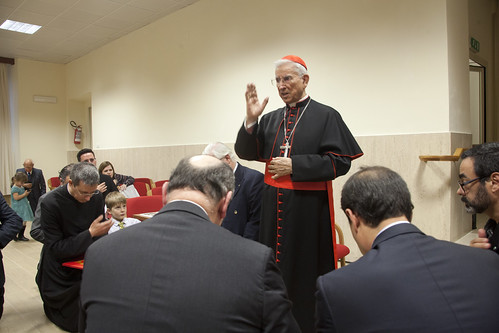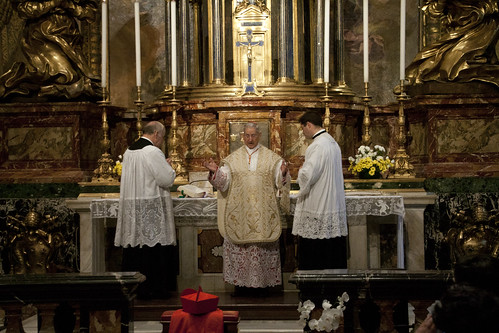
A series of four High and Sung Masses in Oxford will celebrate the coming of the Holy Spirit on the Apostoles at Pentecost.
Saturday 19th May: Vigil of Pentecost: 10:30am High Mass in Blackfriars
This was formerly regarded as such an important occasion the liturgy reprised the Vigil of Easter. The Dominican Rite High Mass will do exactly that, with four 'prophecies' (readi
ngs from the Old Testament) before the Epistle and Gospel of Mass. Accompanied by the Schola Abelis.
Blackfriars, St Giles, Oxford OX1 3LY
Sunday 20th May: Whitsun (Pentecost Sunday): 12 noon Sung Mass, SS Gregory & Augustine's.
Also: 8am Low Mass, Oxford Oratory
SS Gregory & Augustine's, 322 Woodstock Road, Oxford, OX2 7NS
The week after Whitsun is 'Whit Week', like the week after Easter each day has a high rank and ordinary saints' days cannot be celebrated. It is also an 'Ember' Week, with an extra reading on Wedneday and a set of prophecies on the Saturday.
Low Masses are celebrated:

Wedneday 6pm, SS Gregory & Augustine
Friday 12:15pm, Holy Rood, Abingdon Road
Friday 6pm, SS Gregory & Augustine
Saturday 26th May: Whit Saturday, the Ember Saturday of Pentecost: 11:30am, High Mass in Holy Rood, Abingdon Road. Accompanied by the Schola Abelis.
Holy Rood, 38 Abingdon Road, Oxford OX1 4PD
 Sunday 27th May: Trinity Sunday: High Mass in Holy Trinity, Hethe,
Sunday 27th May: Trinity Sunday: High Mass in Holy Trinity, Hethe, for the Patronal feast of this historic church north east of Oxford. With polyphony from Cantus Magnus under Matthew Schellhorn.
Hardwick Road, Hethe, OX27 8AW Click here for a map
Support the work of the LMS by becoming an '
Anniversary Supporter'.
